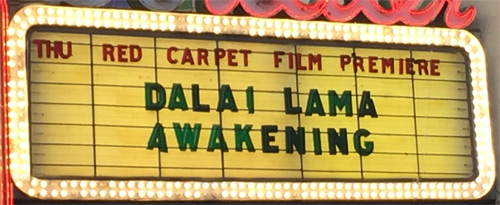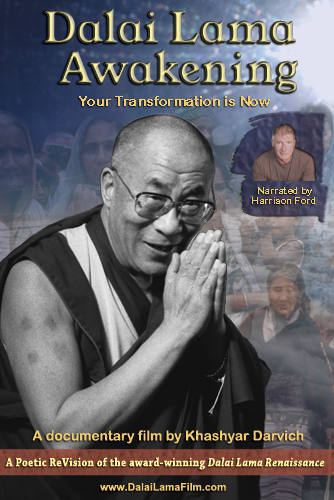Michel Tyabji’s muisc featured in “Eat Pray Love”
Music can reach beyond the whirring activity of our minds and stir the spirit within us. Films strive to fuse this musical pleasure with each scene and tug at our emotions. In a film like “Eat Pray Love,” our eyes feast on the rich scenery, while our ears are filled with the sounds and music of Italy, India, and Bali.
Michel Tyabji is one of the artists that helped to bring such musical richness to the scenes of the film “Eat Pray Love.” Tyabji is a preformer, composer, sound engineer and co-owner of Limitless Sky Records.
“I learned from many others that by making music you can help stir the kind and generous spirit,” Tyabji says. Born in India, Tyabji’s story demonstrates how the combination of a humble spirit, a little luck, a great deal of skill, and a guiding family can intertwine to put you in a place where you never expected to be, but is wondrous when you look around.
Tyabji’s parents worked for UNICEF and as a result, he has lived in Bhutan, India, Yemen, Somalia, Tanzania, the UK, and currently the United States. “I can do other things, but I always end up back to the music. When everything went crazy in Somalia, it was the music that helped bring us together.” Tyabji draws from the sounds of these lands in the film scores he composes.
“Music in film can be a real mix-up, an ideal playground for a musical chameleon,” Tyabji says.
Tyabji shows his changeable colors in “Dali Lama Renaissance.” The film, produced and directed by Khashyar Darvich of the The Wakan Foundation for the Arts is a documentary with narration by Harrison Ford. The film shows what happened when His Holiness the 14th Dalai Lama of Tibet invited 40 Western leaders and thinkers to his home in the Himalyas. Tyabji’s soundtrack dipped into a broad palate of world music, bringing together musicians of different cultures and styles to create a beautiful meditation on His Holiness’s message of peace.
Tyabji has family roots in music and community activism. His great grandfather was one of the lawyers who helped shape India’s constitution and his great-cousin Rehana Tyabji was a Muslim singer of Hindu Devotional Songs, favored by Bapu Gandhi.
Rehana’s influence has trickled down the generations to Michel Tyabji, whose quest to find recordings of his relative’s voice lead him to work on “Eat Pray Love”.
In 1933 Rehana’s voice was captured on wax cylinders by the great ethnomusicologist Arnold Bake. The Berlin Phonogramm-Archiv released a compilation of these recordings in 2000. Tyabji wanted to make a copy of the recordings to share with his family, but was unable to persuade the Berlin Phonogramm-Archiv to give him access. After relegating the quest to a distant to-do list, Tyabji met Nazir Jairazbhoy and Amy Catlin-Jairazbhoy, ethnomusicologists with “a list of accomplishments so long that it seems implausible to do so much in one lifetime.” Nazir Jairazbhoy had grown up next to the Tyabjis in India. His new friends were glad to show Tyabji the recordings of Rehana in their own library.
When Sony was searching for appropriate music to accompany the two ashram scenes in the movie “Eat Pray Love”, they consulted Amy Catlin-Jairazbhoy, who directed them to Tyabji. The scenes had originally been recorded with singing from the ashram in New York, but without the rights to the music, Sony was in need of sound to accompany the chanting and swaying ashram devotees. Tyabji wrote twelve pieces, and six of these were used in the film.
“Actors move and sing along in these scenes,” Tyabji explains, “so all the music and lyrics had to work for picture.” For example, in the New York Ashram scene a close up of James Franco singing meant that his lip movements needed to plausibly match with the words of the bhajan.
The singers in Tyabji’s recordings are friends and family. “They better resemble a congregation of devotees than a group of professional singers” Tyabji says. Traditional instruments accompany the energetic voices: tabla, tanpura, harmonium, castanets, bells, and finger cymbals. Collaborators Hemant Ekbote played the tabla and Kito Rodriguez played acoustic guitar and sang.
Music creates moments where the world can be calm, and it is this spirit that Tyabji seeks. “The best times I can recall are when music is happening” Tyabji says, “In those moments, time itself is irrelevant. One becomes addicted to those moments.”

Sign up for our Wakan Films email newsletter and receive the very first and latest news from Director Khashyar Darvich and Wakan Films about the release of our new inspiring films, and where they are screening near you.

Sign up for our Wakan Films email newsletter and receive the latest news from Director Khashyar Darvich and Wakan Films about the release of our new inspiring films, and where they are screening near you.